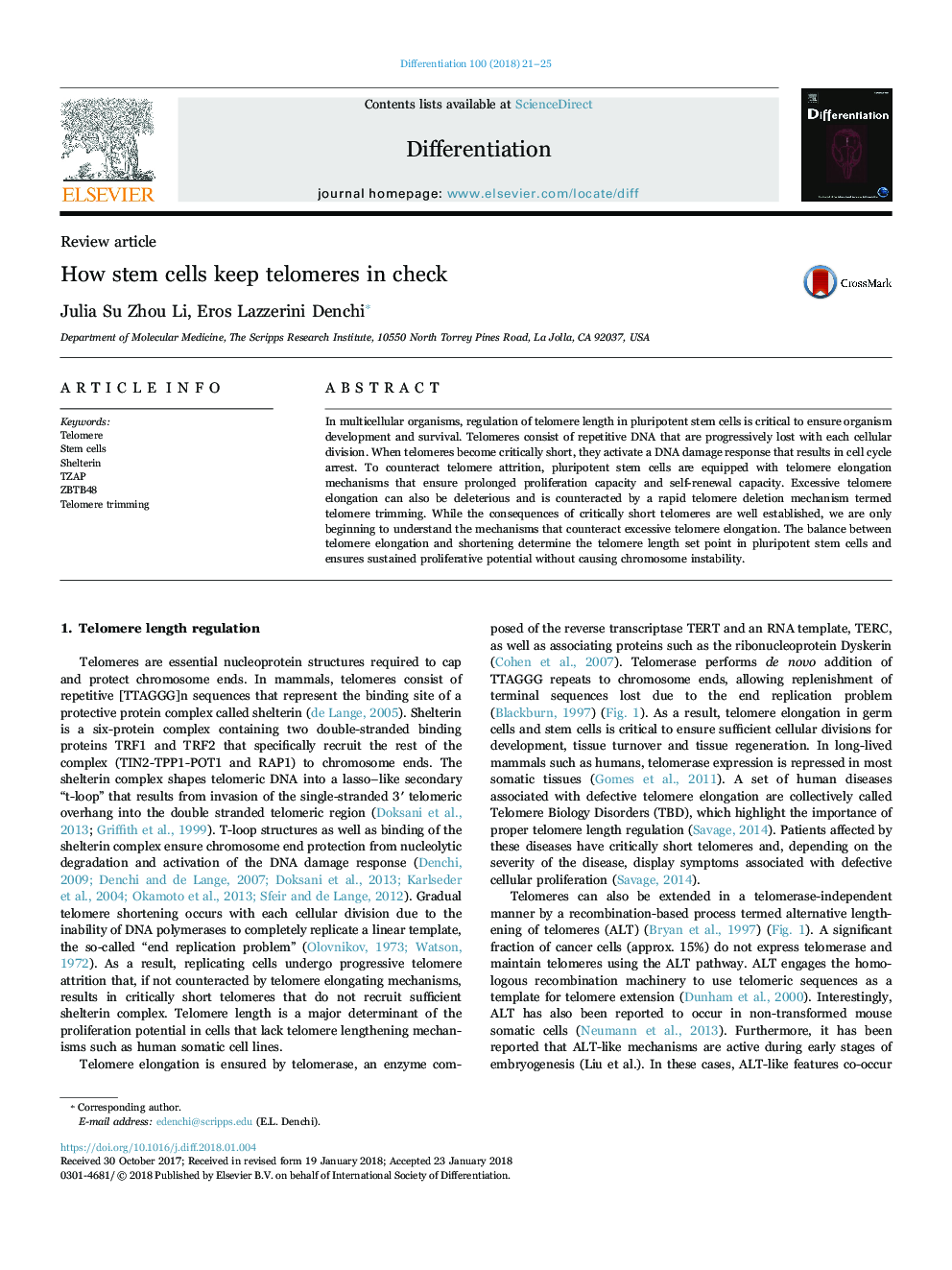| Article ID | Journal | Published Year | Pages | File Type |
|---|---|---|---|---|
| 8436223 | Differentiation | 2018 | 5 Pages |
Abstract
In multicellular organisms, regulation of telomere length in pluripotent stem cells is critical to ensure organism development and survival. Telomeres consist of repetitive DNA that are progressively lost with each cellular division. When telomeres become critically short, they activate a DNA damage response that results in cell cycle arrest. To counteract telomere attrition, pluripotent stem cells are equipped with telomere elongation mechanisms that ensure prolonged proliferation capacity and self-renewal capacity. Excessive telomere elongation can also be deleterious and is counteracted by a rapid telomere deletion mechanism termed telomere trimming. While the consequences of critically short telomeres are well established, we are only beginning to understand the mechanisms that counteract excessive telomere elongation. The balance between telomere elongation and shortening determine the telomere length set point in pluripotent stem cells and ensures sustained proliferative potential without causing chromosome instability.
Keywords
Related Topics
Life Sciences
Biochemistry, Genetics and Molecular Biology
Cancer Research
Authors
Julia Su Zhou Li, Eros Lazzerini Denchi,
